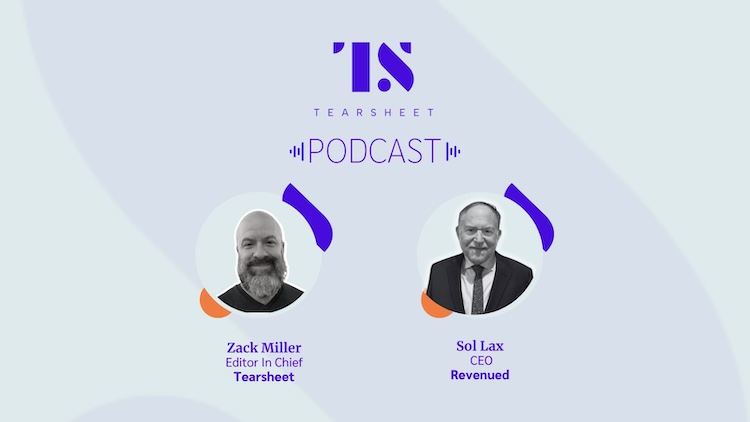On today’s episode, we sit down with Sol Lax, the CEO of Revenued, to dive into the intricacies of small business lending. Lax shares his journey from managing Merchant Cash Advances (MCA) to leading Revenued, a company focused on providing financial solutions for small businesses, particularly those with subprime FICO scores. With a background rich in financial innovation and a keen understanding of small business needs, Lax offers insights into the challenges and opportunities in the subprime lending space.
“Merchant Cash Advances (MCA) were a necessary but imperfect tool for small businesses,” Lax explains. “We saw an opportunity to create a more flexible and tailored financial product.”
Through the tumultuous times of the Paycheck Protection Program (PPP), Revenued pivoted and leveraged its platform to process over a million PPP loans. This experience honed their skills in anti-fraud measures and scaling operations, setting the stage for their current offerings. It’s a candid conversation that you won’t want to miss!
Sol Lax is my guest today on the Tearsheet Podcast.
Understanding the Limitations of MCA
Lax begins by detailing the limitations of traditional Merchant Cash Advances (MCA). While MCA addresses the needs of high-risk customers, it falls short in flexibility and cost-effectiveness. “Early repayment on an MCA term is not really discounted,” he notes. This rigidity often leads small businesses to overextend themselves financially, taking larger sums than needed due to the inflexible structure of MCAs.
The Innovation of Revenued’s Flex Line
Revenued’s Flex Line is designed to address these shortcomings. “We created a product that offers more controllable, predictable, and available capital,” says Lax. This innovation allows small businesses to access funds as needed without the pressure of taking on excessive debt. It’s a solution tailored to the real-world needs of small business owners, providing a safety net and a more manageable financial tool.
From PPP to Anti-Fraud Expertise
The PPP era was a turning point for Revenued. Partnering with Cross River Bank, they processed approximately a million PPP loans, which was a crash course in scaling and anti-fraud measures. “It was utterly crazy but a fantastic learning experience,” recalls Lax. This period refined their technological infrastructure and credit models, setting a robust foundation for their current operations.
The Future: Data-Driven Insights and Expanded Services
Looking ahead, Lax envisions a future where Revenued not only provides financial products but also offers valuable insights to small businesses through data analysis. “We have the ability to look at things like who’s using which bank and how much they’re spending in fees,” he explains. This data can empower small businesses to make informed decisions, optimize their operations, and potentially save on costs.
The Big Ideas
- Lax emphasizes the need for flexible financial products. “MCAs are too rigid,” he says. “Our Flex Line offers more controllable, predictable, and available capital.”
- The PPP era was instrumental in refining Revenued’s operations. “Processing a million PPP loans taught us anti-fraud and scaling,” Lax recounts.
- Revenued is harnessing the power of data to provide actionable insights that help in decision making. “We can show small businesses how much they’re spending on bank fees and help them find better options,” Lax explains.
- Lax acknowledges the difficulties in subprime lending but sees opportunities. “Subprime small businesses find it challenging to access credit,” he notes. “With a different credit perspective, we can make it happen for them.”
- Revenued is looking to expand its offerings through strategic partnerships. “We’re partnering with companies to provide business insurance quotes and other services based on our data,” says Lax.









 actually own (most of the time this occurs sometime after hitting some single malt before bed and sometime before day break). I dunno — I read the labels on food that I ingest. Just thought it might be interesting to know what’s in the mutual fund into which I invested all my life’s savings. Just for kicks, you know?
actually own (most of the time this occurs sometime after hitting some single malt before bed and sometime before day break). I dunno — I read the labels on food that I ingest. Just thought it might be interesting to know what’s in the mutual fund into which I invested all my life’s savings. Just for kicks, you know?